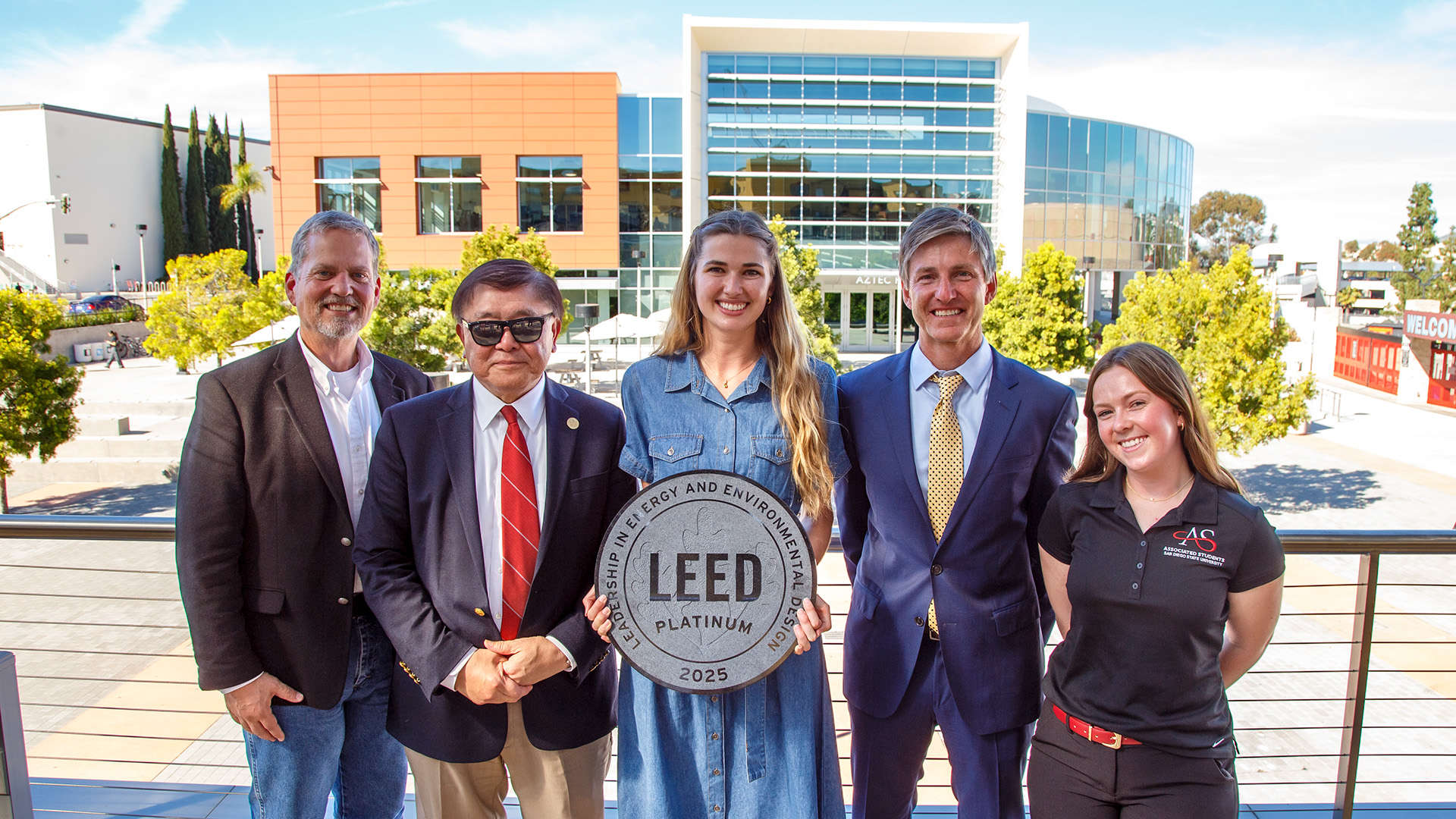Nearly One Million Older Adults Living In San Diego By 2030
The projected population growth of adults age 60+ living in San Diego County was announced at SDSUs Inaugural Age-Friendly University Lecture Series.

For the first time in U.S. history, adults age 65 and older will outnumber children under age 18 by 2034, according to recent data from the U.S. Census Bureau.
The generational population shift is already underway in San Diego County, finds the newest California Department of Finance Demographics report, which projects more than 910,000 people aged 60+ are expected to live in the county by the year 2030.
“In the next eight years, the number of older adults living in San Diego County will have increased by 80% since 2010,” said Kim Gallo, director of Aging & Independence Services (AIS) at the San Diego County Health and Human Services Agency.
“Older adults are living healthier, longer lives,” Gallo said in her keynote speech at the SDSU Age-Friendly University (AFU) lecture series hosted by the Center for Excellence in Aging & Longevity (CEAL). “They’re working longer, contributing to our economy and communities, and are actively engaged in learning.”
SDSU Provost and Senior Vice President Salvador Hector Ocho kicked off the inaugural series by reaffirming the university’s commitment as the region’s first designated Age-Friendly University and its dedication to lifelong learning through intergenerational resources, including SDSU’s CEAL and Osher Institute.
Student interest in the AFU space is rising, said Emily Tran, a gerontology major at the School of Social Work and founder of the Intergenerational Gerontology Alliance (IGA), a new student-led club.
“The purpose of IGA is to bring together students and alumni within aging communities and organizations in San Diego — we offer intentional, intergenerational conversations through mentoring, volunteering, and collaboration opportunities on campus and in the community.”
"Much of today’s conventional education does not teach academics to consider the extra twenty to thirty years of life that many people are living or will live,” said Bob Prath, state executive council member for AARP, an older adult advocacy group. “AARP California applauds the Center for Excellence in Aging and Longevity for recognizing and embracing the value older adults bring to communities.”
Addressing the issues and emerging opportunities for older adults, caregivers, students, and educators will have a sustainable impact, said Steve Hornberger, SDSU faculty member and CEAL co-director, and he said there are immediate benefits too.
“Sometimes, the most meaningful thing you can do for a person is to help them see opportunities to participate and to engage with their community and, through that, feel valued and appreciated. Our focus is to assist all San Diego’s older adults to live long and healthy lives of equity, opportunity and wellness,” said Hornberger.




